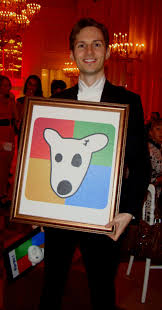
Introduction
Pavel Durov, the Russian entrepreneur and creator of the popular messaging platform Telegram, has made significant strides in redefining social media and communication. His focus on privacy and free speech resonates strongly in today’s digital landscape, making his work increasingly relevant amid growing concerns over data privacy and the centralization of information. Durov’s vision not only changed how people interact but also influenced global dialogue on digital rights.
The Rise of Telegram
Launched in 2013, Telegram quickly gained traction for its robust privacy features and user-friendly interface. Durov’s commitment to privacy saw the incorporation of encrypted messaging, making it a preferred choice for users wary of government surveillance and corporate data collection. As of 2023, Telegram boasts over 700 million active users, marking a significant increase from previous years, especially during the COVID-19 pandemic, which pushed more people towards digital communication solutions.
Decentralization and Freedom of Speech
One of Durov’s central tenets is the belief in freedom of expression. Telegram’s ad-free platform allows users to voice their opinions without fear of censorship. This philosophy positions Telegram as a reflection of Durov’s values, often leading to clashes with various governments attempting to impose restrictions. For instance, in 2021, Durov refused to comply with a demand by Russian authorities to establish a backdoor that would allow access to user data, emphasizing his stand on maintaining users’ confidentiality even in the face of political pressure.
Innovations and Future Prospects
Under Durov’s guidance, Telegram continues to evolve, introducing a variety of features such as voice and video calls, channels, and bots, transforming it from a simple messaging app into a comprehensive social media platform. Furthermore, with the rise of cryptocurrency, Durov has also explored the possibilities of integrating blockchain technology within Telegram, signaling a move towards decentralized content sharing. This innovation could lead the way in how users create, share, and monetize their content.
Conclusion
Pavel Durov’s impact goes beyond the sphere of technology; his dedication to privacy, free speech, and innovation mark a new era in digital communication. As awareness around data privacy continues to grow, Durov’s next steps will be closely watched, with expectations that Telegram will adapt and expand while preserving its core philosophies. His journey serves as an inspiration for entrepreneurs and innovators seeking to navigate the complex landscape of modern media, striking a balance between technology, user rights, and corporate responsibility.



